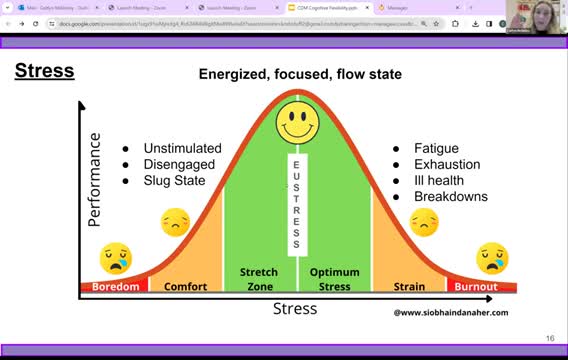Strategies to Combat Student Burnout and Boost Focus
November 01, 2024 | Pacific Grove Unified, School Districts, California
This article was created by AI summarizing key points discussed. AI makes mistakes, so for full details and context, please refer to the video of the full meeting. Please report any errors so we can fix them. Report an error »

In a recent government meeting focused on student well-being and academic performance, experts discussed the critical balance between eustress and distress in educational settings. Eustress, characterized as positive stress that enhances focus and energy, is essential for students to thrive, particularly during high-pressure periods such as the end of the semester. Conversely, distress leads to burnout and fatigue, often exacerbated by procrastination and overwhelming workloads.
The discussion highlighted the importance of creating an environment that fosters eustress, encouraging students to engage in productive activities without succumbing to the \"slug state,\" a term used to describe a lack of motivation and energy. Experts advised parents to help their children establish a structured routine that includes decompression time after school, allowing them to recharge before tackling homework and chores.
Strategies for managing academic tasks were also emphasized, with a focus on the \"before, during, and after\" framework. This approach encourages students to plan their work, take breaks while completing tasks, and reflect on their performance afterward. By breaking down assignments into manageable steps, students can enhance their executive functioning skills and improve their overall academic success.
Additionally, the meeting introduced a concept called the \"strabbit,\" which combines structure and habit to promote cognitive flexibility. This method aims to help students organize their tasks effectively while developing consistent study habits.
Overall, the meeting underscored the need for supportive strategies that empower students to navigate their academic responsibilities while maintaining their mental health and well-being.
The discussion highlighted the importance of creating an environment that fosters eustress, encouraging students to engage in productive activities without succumbing to the \"slug state,\" a term used to describe a lack of motivation and energy. Experts advised parents to help their children establish a structured routine that includes decompression time after school, allowing them to recharge before tackling homework and chores.
Strategies for managing academic tasks were also emphasized, with a focus on the \"before, during, and after\" framework. This approach encourages students to plan their work, take breaks while completing tasks, and reflect on their performance afterward. By breaking down assignments into manageable steps, students can enhance their executive functioning skills and improve their overall academic success.
Additionally, the meeting introduced a concept called the \"strabbit,\" which combines structure and habit to promote cognitive flexibility. This method aims to help students organize their tasks effectively while developing consistent study habits.
Overall, the meeting underscored the need for supportive strategies that empower students to navigate their academic responsibilities while maintaining their mental health and well-being.
Don't Miss a Word: See the Full Meeting!
Go beyond summaries. Unlock every video, transcript, and key insight with a Founder Membership.
✓
Get instant access to full meeting videos
✓
Search and clip any phrase from complete transcripts
✓
Receive AI-powered summaries & custom alerts
✓
Enjoy lifetime, unrestricted access to government data
30-day money-back guarantee

